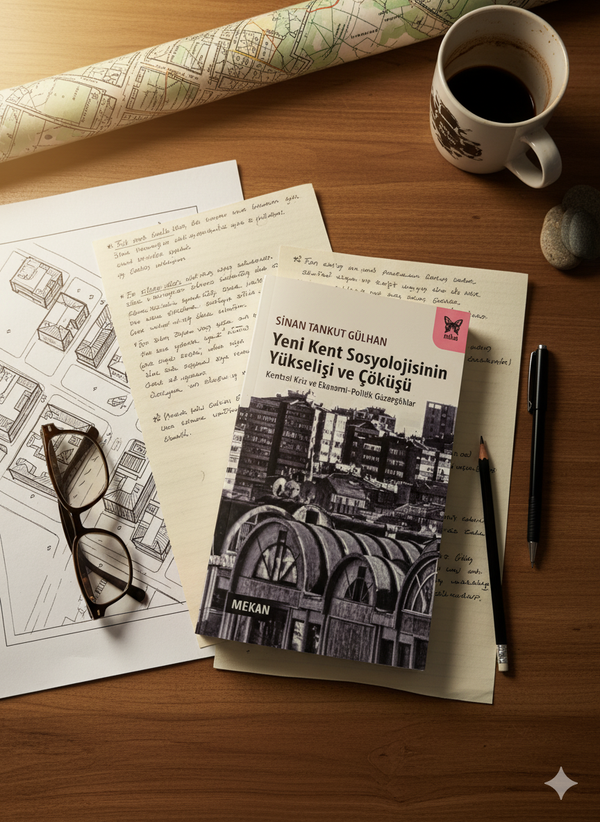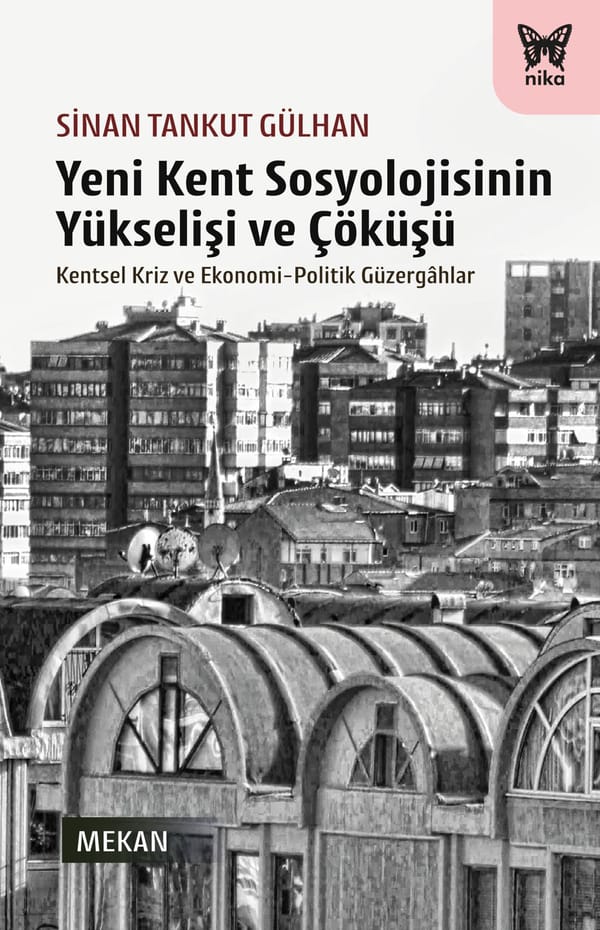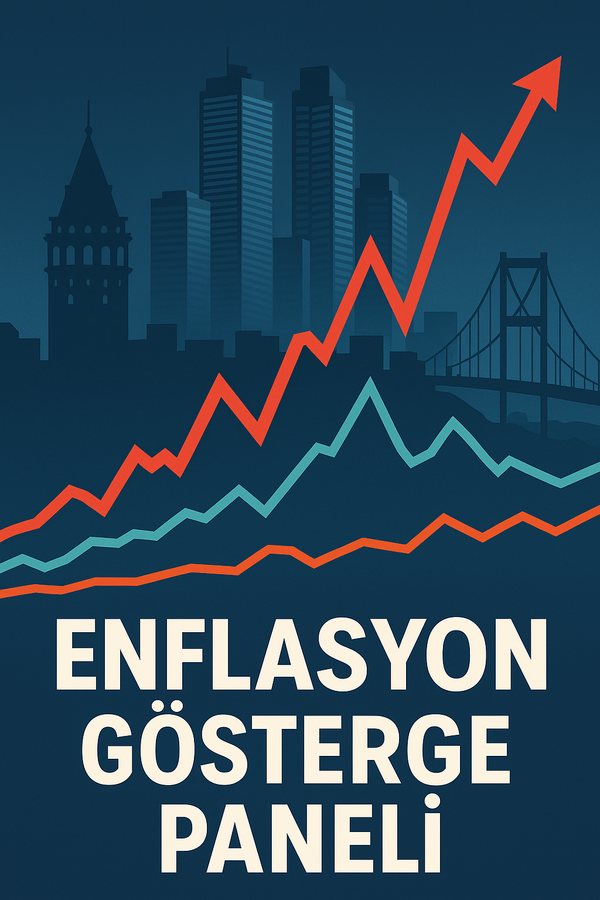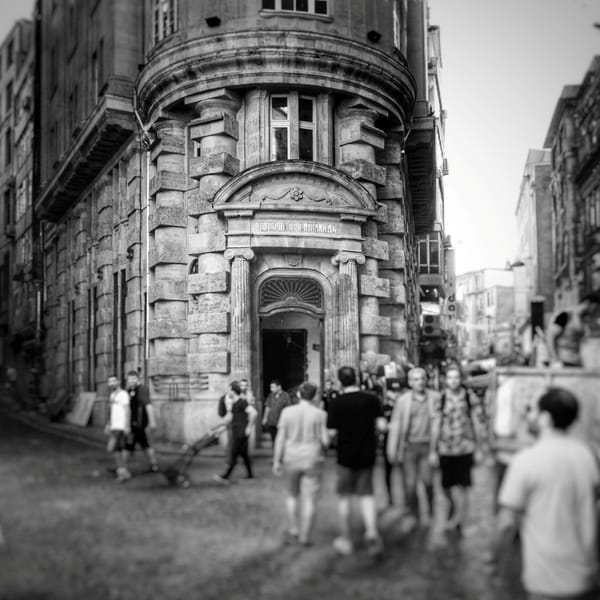Walden Bello'nun kısa bir mülakatı
Walden Bello'nun kişisel biyografisi, yazarın, derin bir sosyal adalet duygusu ve baskıcı sistemleri anlama ve onlara meydan okuma arzusuyla yönlendirilen, çalışkan bir gençlikten kararlı bir aktiviste uzanan yolculuğunu ele alıyor.
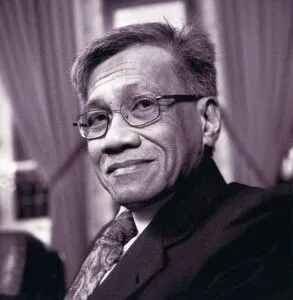
Walden Bello’nun doktora ve yüksek lisansımı yapıp, yedi seneye yakın kaldığım bölüme geldiğini öğrendiği sıralarda, ben de tez araştırmamı yapmak üzere Türkiye’ye geri dönüyordum. O zaman tuttuğum blogda onun hakkında çıkan bir yazıyı paylaşmıştım.
Antipode’a verdiği bir röportajdan.
Daha sonra, büyük şans eseri, tezimi savunduktan sonra Türkiye’ye geri dönerken aynı otobüsteydik. Hep memlekete geri dönerken Walden Bello’yla karşılaşmam da bir tesadüf diyelim. Çok nazik, çok kibar, çok dost canlısı bir insandı. Kaldı ki, genelde çekingen bir insanımdır. Uçağım çok erken saatlerdeydi, zaten utangacımdır, hiç Walden, çok takdir edilesi bir insansın diyemeden gitmek zorunda kalmıştım.
Önce Türkçe çevirisini bırakıyorum, Antipode mülakatının:
Neden Mücadele Ediyorum?
Bu soru bana sık sık soruluyor. Bu, sizi durdurup temel ilkelere geri götüren türden bir soru.
Lisans öğrenimim sırasında bazı yazılarım ekonomik ve sosyal konulardı, ancak daha çok sevdiğim edebiyat ve felsefeyle ilgileniyordum. Bir aktivist olarak geç açıldım. 1960'ların ortalarında Filipinler'de üniversitede oldukça çalışkan bir öğrenciydim. 1970'lerde ABD'ye yüksek lisans yapmak için gittiğimde, Vietnam Savaşı'nın etkisiyle bir aktivist oldum. Sosyolojiye daldım ve Princeton'daki savaş karşıtı protestolara giderek daha fazla dahil olurken derslerimi tamamladım.
İlk tutuklanmam kişisel bir dönüm noktasıydı. Biliyorsunuz, ABD'de yabancı bir öğrenci olarak bulunuyordum ve o zamanlar yabancı öğrencilerin siyasi faaliyetlere katılmasına karşı oldukça katı kurallar vardı. Kesinlikle, protesto nedeniyle tutuklanıp hüküm giyerseniz, eve gönderilirdiniz. 1971'de Amerika'nın Laos'a girmesi sırasında, kampüsteki Savunma Analizleri Enstitüsü'nün ablukaya alındığı bir eylem vardı. Sivil itaatsizliğe katılanları desteklemek için gittim, ancak polisin protestoculara nasıl sert davrandığını görünce, kendiliğinden onlara katıldım ve tutuklandım ve daha sonra izinsiz giriş ve tutuklamaya direnmekten hüküm giydim. Sınır dışı edilmeyi bekliyordum ama olmadı. Ancak psikolojik bir çizgiyi aşmıştım.
1972'de Allende hükümeti döneminde Şili'deki gecekondu mahallelerinde siyasi örgütlenme üzerine tezimi yazmak için gittim. Başkent Santiago'yu çevreleyen birkaç gecekondu mahallesinde yaklaşık üç ay geçirdim ve yükselişte olanın devrim değil, karşı devrim olduğunu fark ettim. Karşı devrimin dinamiklerinden etkilenmiştim ve aynı zamanda onu inceleyerek edineceğim bilgilerin, kendimi kesinlikle bir parçası olarak hissettiğim sola faydalı olacağını hissediyordum. Bu yüzden tez konumu gecekondu örgütlenmesinden karşı devrimin yükselişine kaydırdım ve fanatik Allende karşıtı olan elit ve orta sınıf insanlarla görüşmeye başladım. Tabii ki kendimi bir Princeton araştırmacısı olarak tanıttım, ancak konuştuğum kişilerin çoğu, esmer tenli birinin Şili'de Fidel Castro'nun bir Küba ajanı dışında bir sıfatla bulunabileceğini düşünemiyorlardı ve iki kez dövülmekten kıl payı kurtuldum.
Yine de, bir kişi siyasi olarak angaje olurken, bir entelektüel olarak sosyal gerçekliğe saygı duyması ve onu kısa vadeli partizan amaçlar için çarpıtmaması gerektiğini hissettim. Karşı devrim kazanıyorsa, özellikle orta sınıfların neden onun içine çekildiğini anlamak daha da önemliydi. Tez, Şili'de, 1920'lerin başında İtalya'da ve 1920'lerin sonu ile 1930'ların başında Almanya'da karşı devrimci hareketlerin yükselişinin karşılaştırmalı bir analizi olarak sona erdi. Bunu ABD'de Şili için dayanışma çalışmaları yaparken yazdım.
1972'de Filipinler'de sıkıyönetim ilan edildiğinde Şili'deydim. ABD'ye döndüğümde, hemen sürgün siyasetine daldım. Washington, Marcos'un en önemli destekçisi olduğundan, ABD örgütlenmek için çok stratejik bir alan haline geldi. Bu yüzden tezimi bitirirken bile, Princeton ve Washington DC arasında mekik dokuyor, Marcos'a askeri ve ekonomik yardımı kesmeyi amaçlayan kararlı bir lobi haline gelecek olan şeyi kurmaya yardımcı oluyordum. Severina Rivera ile birlikte yazdığım ve 1977'de çıkan "Baskının Lojistiği: Filipinler'deki askeri diktatörlüğe ABD yardımı" adlı çalışma, Marcos rejimine ABD desteğinin farklı kanallarını ortaya koydu.
Washington'dayken, Marcos'a yapılan ekonomik yardımın büyük kısmının ikili kanallardan değil, Dünya Bankası aracılığıyla gittiğini fark ettim. Ancak, Dünya Bankası'nın Filipinler'deki operasyonları çok şeffaf değildi. Bu dev kurumun ne yaptığını anlamaya çalıştığınızda, tek elde ettiğiniz şey dezenfekte edilmiş basın bültenleriydi. Yani Bankanın ne yaptığını öğrenmek için Bankaya girip belgeleri çalmak zorunda kaldık. Bunu üç yıl boyunca, Şükran Günü ve Noel Günü gibi kimsenin olmadığı günlerde Bankayı hedef alarak yaptık. Görevlerden dönen yorgun Banka personeli gibi davrandık, kravatlarımız eğriydi ve "kimliklerimiz" için el yordamıyla ararken, gardiyanlar endişelenmeyin diyerek bizi içeri alıyorlardı. Sonunda, ülkedeki her Banka projesi hakkında 3000 sayfa gizli belge ve Bankanın Marcos'a muhalefet konusunda gerginleştiğini gösteren siyasi risk analizi elde ettik. Filipinler'de Kalkınma Fiyaskosu: Dünya Bankası kitabı 1982'de çıktı. Filipinler'de yeraltı bir çok satanlar listesinde yer aldı ve insanlar bana orta sınıfı Marcos'a karşı harekete geçiren kitaplardan biri olduğunu söylüyor. Bu bölümden çıkardığım bir ders, gerçekten iyi araştırma yapmak için bazen yasayı çiğnemeniz gerektiğiydi. Yakalansaydık, meslektaşlarım ve ben hırsızlıktan 25 yıl hapis cezası alabilirdik. Aslında, gizli Banka belgelerini nasıl ele geçirdiğimizin hikayesinin, cezai suçlar için zaman aşımı süresi geçene kadar beklemesi gerekiyordu.
ABD'deyken, Filipinler Komünist Partisi'ne (CPP) katıldım ve sonraki birkaç yılı atandığım yere giderek ve partinin gerekli gördüğü şeyi yaparak geçirdim. 1975'te doktora tezimi tamamladıktan sonra tam zamanlı bir aktivist oldum ve sonraki 19 yıl boyunca akademiye dönmeyecektim. Birçok genç Filipinli için, 1970'lerde ve 1980'lerde diktatörlükle etkili bir şekilde mücadele etmek, o zamanlar en etkili direniş örgütü olan CPP'ye katılmak anlamına geliyordu. İlham vericiydi ve disiplinli olsa bile esnek ve yenilikçiydi. Bir yandan bana örgütsel beceriler kazandırırken, diğer yandan şeylere dair analizimi dinliyordu. Parti rehberliğinde, Washington'daki çalışmaları organize etmeye, ülke çapında sıkıyönetim karşıtı koalisyonu kurmaya, uluslararası bir dayanışma ağı kurmaya yardımcı oldum ve sivil itaatsizlik konusunda uzmanlaştım, Marcos hükümetinin konsolosluklarını ve elçiliklerini ele geçirdim. Bu eylemlerin en akılda kalıcı olanı, 1978'de San Francisco'daki Filipinler Konsolosluğunu beş saat boyunca işgal eden bir ekibe liderlik ettiğim zamandı. Bir SWAT ekibi tarafından tahliye edildik, tutuklandık ve sonunda hapiste zaman geçirdik, buradan da ancak bir haftalık bir açlık grevine girdikten sonra çıktık.
14 yıl üye olduktan sonra 1980'lerin sonunda partiden ayrıldım. Neden? 1980'lerin ortalarında, şüpheli askeri muhbirlerin saflarını temizlemek için birkaç tasfiye gerçekleştirdi. Kampanyalar sonunda 2000'den fazla can aldı. Şok oldum ve olanları araştırmaya karar verdim. Bu tasfiyelere kurban veya cellat olarak katılan onlarca kişiyle yapılan görüşmeler, bana sadece partide sağlam bir adalet sisteminin korkunç eksikliğini değil, aynı zamanda insanlara yalnızca sınıf konumları ve siyasetleri için değer veren bir bakış açısındaki sorunu da ortaya koydu. Bir kez karşı devrimci olarak etiketlendikten sonra, "halkın" sizin için uygun gördüğü herhangi bir cezaya tabi olan düşmandınız.
Tasfiyeler, bir zamanlar esnek ve yenilikçi bir parti olan partinin doktriner, Stalinist bir makineye dönüşmesinin işaretiydi. Bu örgütün, yalnızca devrimci yaratıcılığı boğmakla kalmayıp aynı zamanda Sovyetler Birliği, Çin ve Kamboçya'daki çok sayıda sıradan vatandaşla birlikte kendi halkını da yok etmeye başlayan aynı solcu otoriterliğe dönüştüğünü görmek yürek burkan bir şeydi. Parti, tasfiyelerle ilgili çalışmamı kamuoyuna açıkladığım için beni asla affetmedi. 2005 yılında "karşı devrimci" olarak etiketlendim ve bazıları parti liderliğindeki Yeni Halk Ordusu tarafından zaten suikaste uğramış 14 kişilik bir listeye alındım.
1987'de, Frances Moore Lappe ve Joe Collins tarafından 1975'te kurulan San Francisco'daki Food First veya Gıda ve Kalkınma Politikası Enstitüsü'ne katıldım. Bu, yeni sanayileşen ülkelerin (NIC'ler) ayın gözdesi olduğu ve gelişmekte olan ülkelere Doğu Asya "kaplan ekonomilerinin" yolunu izlemeleri söylendiği bir zamandı. Bence, gizemi çözülmesi gereken bir modeldi. 1990'da ben ve Stephanie Rosenfeld, NIC modeline kapsamlı bir eleştiri olan Sıkıntılı Ejderhalar: Asya'nın Mucize Ekonomileri Krizde kitabını çıkardık. 1997'de Asya mali krizi patlak verdiğinde, Ejderhalar'da krizi altı yıl önceden tahmin ettiğim söylendi. Pek değil. Çevre ve tarımdaki krizlerle birlikte ortaya çıkan bir ekonomik yapı krizini ayrıntılı olarak anlattım, ancak finans alanında patlak verecek krizi öngörmemiştim. Kitabın mesajı, NIC'ler yoksulluk içinde yaşayan insan sayısını azaltmayı başarmış ve kapsamlı bir sanayileşme sağlamış olsa da, ihracata yönelik sanayileşmenin sürdürülebilir olmadığı ve diğer gelişmekte olan ülkeler için bir model olmadığıydı. Bu mesajın tüm etkileri, ihracata yönelik kalkınma stratejilerinin her yerde krizde olduğu bu günlerde nihayet ortaya çıkıyor.
1993'te Food First'ten ayrıldıktan sonra, Filipinler Üniversitesi'ne sosyoloji profesörü olarak katıldım. Doktoramı aldıktan yaklaşık 20 yıl sonra akademiye geri dönmüştüm. Aynı zamanda, Kamal Malhotra ve ben Bangkok'ta Küresel Güney'e Odaklan'ı kurduk. Odaklanma, küreselleşme çağında kuzey-güney konuları üzerinde çalışan Asya merkezli bir araştırma, savunuculuk ve eylem örgütü olması amaçlanmıştı. Odaklanma'yı 1995 yılında, Dünya Ticaret Örgütü'nün kurulduğu aynı yıl kurduk ve neredeyse hemen kendimizi küresel yönetim sisteminin mihenk taşı olarak tasarlanan bu kuruma ve entelektüel iskeleti olarak hizmet veren neoliberalizm doktrinine karşı konumlandırdık. 1997'de patlak veren Asya mali krizinin merkez üssündeydik ve Odaklanma, Uluslararası Para Fonu'nun (IMF) sert bir eleştirmeni ve sermaye kontrollerinin savunucusu olarak hızla ün kazandı. 1999'da Seattle'daki DTÖ'nün üçüncü bakanlar toplantısının ve 2003'te Cancun'daki beşinci bakanlar toplantısının çökmesine katkıda bulunan küresel sivil toplum saldırısının bir parçasıydık.
Bugün, DTÖ'nün Doha Ticaret Müzakereleri Turu'nun çöküşü ve IMF ve Dünya Bankası'nın meşruiyet kriziyle birlikte, Odaklanma, mevcut çok taraflı küresel yönetim sistemine ve neoliberal ticaret ve kalkınma yaklaşımlarına alternatifler üretmeye öncelik vermek için çalışmalarını yeniden yönlendiriyor. Yaklaşımımıza, katılımı, katılan ulusal ekonomilerin parçalanmasına değil, güçlenmesine yol açan, gerçekten adil bir uluslararası ekonomiyi getirmek için şirket odaklı küreselleşme kurumlarını sökmenin gerekliliğini yakalamak için "küreselleşmeden çıkış" adı veriliyor.
…
İnsanların analizlerinde kapitalizmin ve ABD gücünün gücünü vurgulamalarını anlıyorum. Ancak, ABD'yi ve küresel sermayeyi küçümsememekle birlikte, onları abartmamalıyız. Küreselleşme geriliyor ve ABD, Irak'ta kazanamayacağı bir savaşta kanlı ve aşırı yayılmış durumda. Aşırı üretim, aşırı yayılma ve meşruiyet üçlü krizi, üretimi, siyaseti ve çevire olan ilişkimizi organize etmenin alternatif yolları için alan açıyor. Bu çok heyecan verici bir konjonktür.
Öyleyse başlangıçta sorduğumuz soruya geri dönelim: neden mücadele ediyorum? Sanırım mücadele ediyorum çünkü insanın hayatıyla değerli bir şey yapması gerektiğini düşünüyorum. Bunda kahramanca bir şey yok. Sadece insan olmak için yapmalısınız. Bu, özellikle marjinalleştirilmiş ve ezilenler olmak üzere, insan kardeşlerimize borçlu olduğumuz bir şey. Dünyada, sahip olduğumuz bu tür sömürü ve yoksulluğun uzun zaman önce ortadan kaldırılmış olması gereken bir durumdayız. İnsanlar daha adil yapılar tasarlayabilmelidir. Ve bu yüzden insan bu sürecin bir parçası olmak zorunda. Çünkü ya sürece dahil olur ve kendinize sadık olursunuz ya da ondan kopar ve sadece bir seyirci olursunuz. Ve bu, bence, kendine sadık olmamak anlamına gelir. Yani, insanın neden benim yaptığım türden bir işe girdiği sorusunun cevabı, yapılacak tek doğru şey bu olduğu içindir. Bunda büyük bir ilham ve gizli bir kahramanlık yoktur. Bir tür şehitlik ve görkemli bir şey değil - sadece saf dürüstlük. Beni motive eden şey en azından bu.


